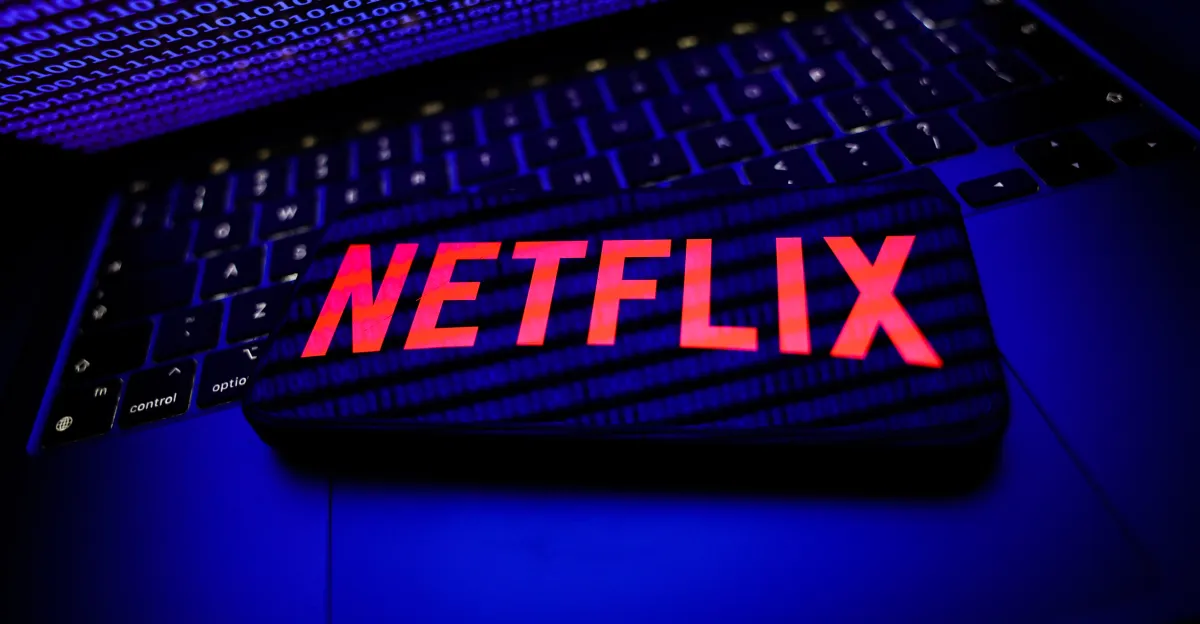UFC owners reveal Netflix was in serious talks for broadcast rights and why deal ultimately didn’t happen

When the UFC started negotiations on a new broadcast deal there were more than a few assumptions that Netflix would end up as the frontrunner after already inking a massive 10-year, $5 billion contract for WWE’s flagship show Monday Night Raw.
Considering the UFC and WWE operate under the same ownership at TKO Group Holdings, Netflix seemed like a perfect landing spot but then out of nowhere Paramount swooped in with a jaw-dropping $7.7 billion deal, which more than doubled the fees that ESPN currently pays for the same package. While Paramount was the surprise that no one saw coming, TKO president and COO Mark Shapiro revealed that talks were very much alive with Netflix, but it turns out the streamer wasn’t interested in taking all of the UFC fights offered on the table.
“Even though we had a lot of different interested parties, not everybody was writing a big check,” Shapiro told The Varsity podcast. “So we knew it was going to take a lot of time to ultimately get the numbers up there. I would tell you the moment, there was one moment of disappointment and that was when we were getting pretty close with Netflix, frankly.
“They kind of stood by the fact that they didn’t want to have the volume, which we understood from the get go. [Netflix co-CEO] Ted [Sarandos] and [chief content officer] Bella [Bajaria] were very up front with that. We’re looking for big events so the fact that you could give us one pay-per-view, which they were just going to put on the platform for free as long as you’re a subscriber, as long as you just give us that, we’re in and we’ll pay premium for it, but we don’t want to carry the other 30 Fight Nights.”
After resisting a move into live sports for many years, Netflix recently started investing more into those kinds of events but not at the season wide level where many deals are struck with various leagues out there.
Netflix has typically stuck to broadcasting major one-off events like the Jake Paul vs. Mike Tyson card, or even the current deal with the NFL, which accounts for two games currently played on Christmas day.
Sarandos has repeatedly stated when speaking with investors that Netflix was only interested in those kinds of marquee events, which stands to reason why the once-a-month UFC offering made sense for them.
But as much as the UFC was open to the idea of splitting up its broadcast fights among multiple suitors, Shapiro admits that was never the ideal scenario.
“We had everybody interested but not everybody was willing to pay the kind of dollars we were looking for, which was 2X,” Shapiro said. “Of course, you’ll get as much as you possibly can but you’re also balancing. You’re not just taking the biggest check. You need to find the right brand and platform to grow your brand and grow your audience and I’m not just saying that because that sounds good. That was something very important to us. We didn’t want to be split up five ways.
“We were willing to, to get the money and as long as those platforms were some of the more premium platforms. It would have been more out of desperation. You’re not looking to go to five partners if you don’t have to. If you don’t have to if you can get it all in a few different places, putting aside the NFL, they’re in a different category.”
As much as Netflix made sense as a business partner with a ridiculous reach considering the streamer has over 300 million worldwide subscribers, splitting up the new broadcast deal just didn’t appeal to the UFC.
“Over the course of conversations, they really didn’t come off of that,” Shapiro said. “That’s what opened the door for Paramount/CBS.”
While Netflix executives clearly only wanted the big, marquee cards from the UFC, that stands in contrast to the current deal with WWE where there’s a weekly program that runs every Monday night.
Shapiro believes that actually worked against the UFC because Netflix was committed having Monday Night Raw for 52 weeks a year, but it seemed there was no interest in adding another piece of programming with a similar schedule.
“I think that played against us,” Shapiro said about WWE’s existing deal with Netflix. “I think they felt like we have volume [with WWE] therefore we don’t need it here.
“So they’ll keep playing in the boxing, look what Canelo Alvarez did for them last weekend, 41 million viewers. Insane. Really not near the amount of marketing or promotion that the [Mike] Tyson fight had. I know that was different. That was more of an exhibition than anything else, a curiosity event, all of us hoping for Tyson to come back at that rough old age. At the end of the day, they wanted to stick with the big spectacles, which made a lot of sense.”
With Netflix out, Shapiro says Paramount immediately became the frontrunner and that’s what led to the deal worth $7.7 billion over the next seven years.
Paramount now takes over the entire broadcast deal with plans to put every UFC event — including those pay-per-view level cards — on its streaming service, Paramount+ at no extra cost to subscribers.
“When CBS/Paramount came knocking on the door saying we’ll play on all of it,” Shapiro said. “We’ll promote cross platform. We’ll use CBS. We want the volume.
“We’re going to grow and really push Paramount+ as our premium platform, get behind it with better tech and a better ad-tech solution and really produce content with the best of technology driven by what they have and what obviously what [David Ellison’s father] has at Oracle. That kind of combination, there’s all kinds of opportunities. That vision that David Ellison laid out, who’s a fan of the UFC, was too good to pass up.”



